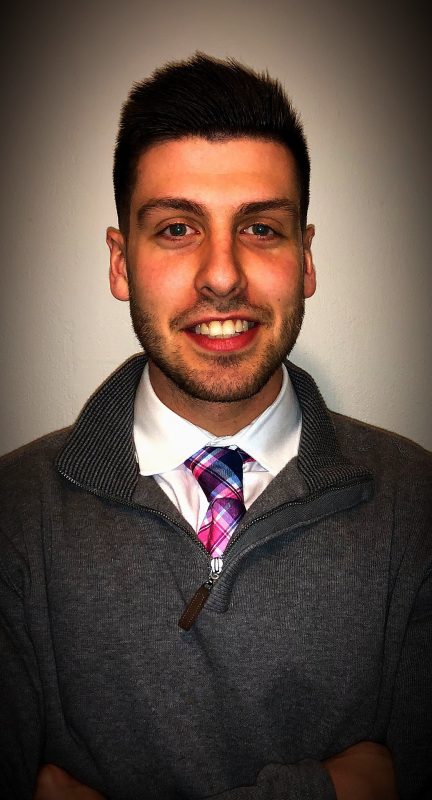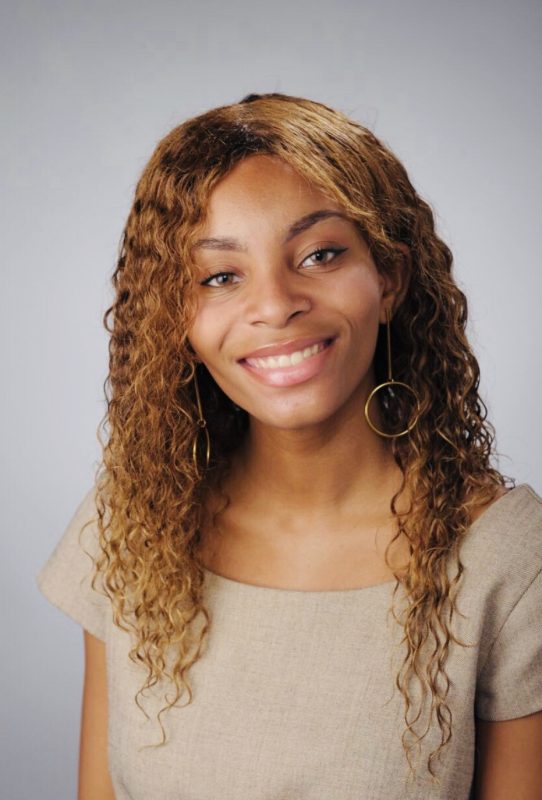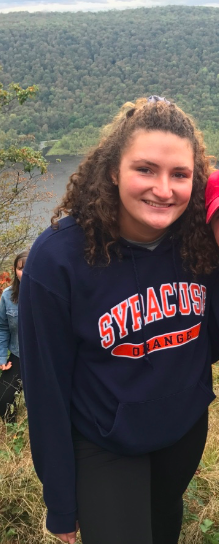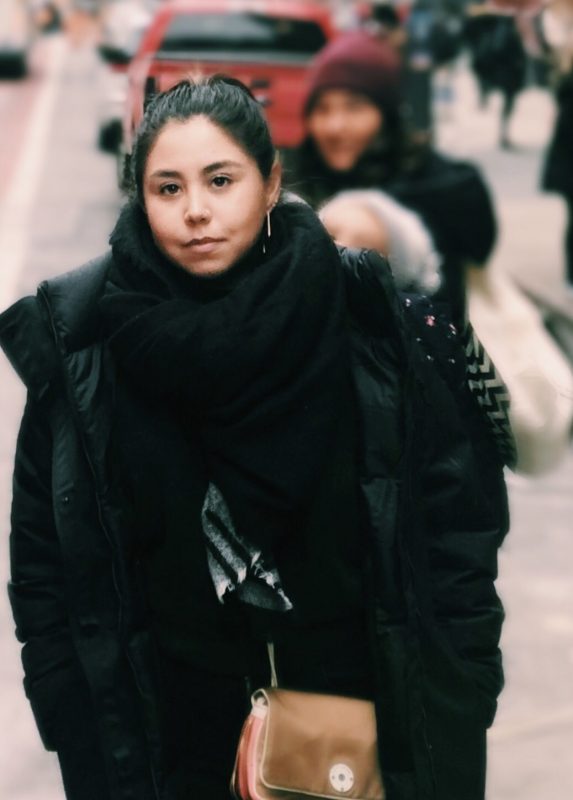Four School of Education students are among the 103 students whose projects represent the first cohort of awardees funded by Syracuse University’s new Office of Undergraduate Research and Creative Engagement, known as The SOURCE.
The SOURCE was created through a collaboration of the Student Association, the University Senate Research Committee, the Renée Crown University Honors Program, the Center for Fellowship and Scholarship Advising, and University faculty.
Each student will work in partnership with a faculty mentor who will guide their research and original creative work. The SOURCE office in Bird Library is staffed with student research mentors who will provide additional one-on-one assistance to students. This advocacy helps fulfill the intent of the University’s Academic Strategic Plan, which is built on a strong commitment to multicultural support.
Brandon Fascia ’20
 Project: “Effect of Beetroot Juice Consumption on Cerebral Blood Flow and Cognitive Performance in Young Adults with a History of Concussion”
Project: “Effect of Beetroot Juice Consumption on Cerebral Blood Flow and Cognitive Performance in Young Adults with a History of Concussion”
“I am passionate about research in this field,” says health and exercise science major Brandon Fascia, who wants to continue research in graduate school. His summer grant project will take place in the Human Performance Laboratory; his mentor is the HPL’s director, Dean’s Associate Professor Kevin Heffernan.
Concussions reduce blood flow to the brain, and this can decrease cognitive function, says Fascia. Beetroot juice can improve blood circulation throughout the body, he adds: “It contains high amounts of dietary nitrates, which elevate nitric oxide levels in the body, which, in turn, improves blood circulation.”
Participants will make three visits of about 90 minutes each to the HPL. The first visit will assess their body composition and their baseline brain blood flow measurements. The participants will be given a list of foods to avoid that could potentially skew results of the study when they return.
On the second and third visits, the participants will drink either beetroot juice (experimental) or carrot juice (control) before they come into the laboratory. Each participant’s brain blood flow will be assessed while they take a computerized cognitive exam that assesses the participant’s reaction time, memory, speed, and processing speed when multitasking.
“These measurements are essential for athletes, especially those who have had a history of concussions,” he says.
“I have a passion for exercise, soccer, and technology,” says Fascia, himself an all-league soccer player for West Genesee High School in suburban Syracuse. In graduate school, he wants to concentrate on cardiac rehabilitation.
Justine Hastings ’21
 Project: “Professional Youth Media Training 2019-2020 Fellowship”
Project: “Professional Youth Media Training 2019-2020 Fellowship”
Justine Hastings will conduct a filmmaking fellowship program for 10 Syracuse middle school students and do research to assess if the filmmaking program has a substantial literacy impact among low-performing students.
The fellowship will give the students the skills and equipment to create their own short films. Hastings says she will teach the students collaborative filmmaking and media arts, media literacy, and storytelling.
“The filmmaking program provides positive creative outlets for young people to address the issues affecting their lives and their communities. I have seen firsthand just how significant and transformative this creative outlet is, especially to members of marginalized groups,” says Hastings, a double major in Secondary English Education in the School of Education and English and textual studies in the College of Arts and Sciences from Brooklyn, New York.
Up to 10 low-performing and/or at-risk students from Hillside Work-Scholarship Connection site in Syracuse will be selected for the fellowship. Hastings will collect writing samples from the students before and after the program. ELA teachers from the Syracuse City School District will grade the writing. Those results will indicate the program’s ability to improve literacy levels, says Hastings.
Kelly Chandler-Olcott, Laura J. and L. Douglas Meredith Professor for Teaching Excellence in Reading and Language Arts, will be Hastings’s mentor in the academic year project.
Hastings, an Our Time Has Come Scholar and participant in the Renée Crown University Honors Program, says she plans to become a high school English teacher because that job would combine an opportunity to teach and mentor others with her love of English literature and composition. In her free time, she makes fictional narrative films.
Caitlin Johnston ’20
 Project: “Bridging the Gap in Foreign-Language Writing”
Project: “Bridging the Gap in Foreign-Language Writing”
Caitlyn Johnston’s goal is to teach in South America. She spent last fall in the Syracuse Study Aboard program, visiting Ecuador, Argentina, Uruguay, and Chile. At Pontificia Universidad Catolica in Santiago, Chile, she studied Chilean history, and Spanish language and phonetics.
The Dobbs Ferry, New York, resident says she chose the School of Education for her major, Spanish education, and the quality of the teaching.
Her academic year grant will allow her to research how writing in a foreign language is taught. Her faculty mentor is Gail Bulman, associate professor of Spanish languages, literatures and linguistics in the College of Arts and Sciences.
“In most cases a student’s writing in their second or third language is not the same quality as their native tongue,” Johnston says. “I want to look into why this happens and how we can modify the way writing is taught to bridge the gap in performance between the two languages.’’
She will observe and interview educators about their methods of teaching writing and examine the standards in this field, to evaluate the expectations for students’ achievement. She’ll also look at student writing samples to see which methods are effective.
“I’m hoping to find some successful ways writing is taught and combine various methods to create a new approach and improve writing performance,” Johnston says.
“It’s a stretch to say there’s a perfect method that will work for every student, but this research could potentially benefit students at various levels of foreign language learning.”
Lourdes Morales Hernandez ’20
 Project: “Using Dialect Levelling for Integration in a Diverse College Community”
Project: “Using Dialect Levelling for Integration in a Diverse College Community”
Lourdes Morales, an international student from Mexico City, will study how Spanish-speaking students adapt their Spanish to become part of the large Spanish-speaking community at Syracuse University.
“I decided to pursue a career in education mainly because I love kids and I believe that teachers can have a huge impact on their lives,” says Morales, a Spanish education major with a psychology minor. “Additionally, I love my language and culture, and I think this is an awesome way to share it with others.”
Emma Ticio Quesada, associate professor of Spanish and linguistics in the College of Arts and Sciences, is her mentor in this academic year project. The participants, incoming Spanish-speaking students, will keep a weekly diary, recording their interaction with community members and reflecting on how their Spanish might affect their being included or excluded, Morales says.
“I will be organizing events and get-togethers so that these students have the opportunity to speak to each other. In addition to this, participants will take a questionnaire that studies their Spanish at the beginning and the end of the school year. This is done to see how their Spanish evolves,” she says.
As an international student, Morales says, “I know firsthand the difficulties and challenges of trying to integrate to a completely new community” and wants her project to provide “insight on how adapting our language can help us integrate better.”
She would like to return to Mexico City to open her own school. In the shorter term, she says, “I am trying to improve my French so that I can go to France for a summer and teach English and Spanish.”
